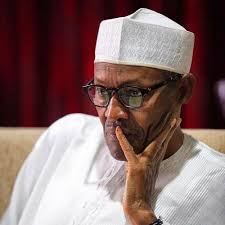- How it influenced judiciary probe
By Onyewuchi Ojinnaka
Senior Correspondent
President Muhammadu Buhari summoned former Chief Justice Mahmud Mohammed to a meeting a few weeks after he took office on May 29, 2015 to express a longstanding grouse.
His view of a corrupt judiciary, which he bared at the meeting, remained unchanged until Mahmud retired on November 10, 2016.
At the meeting, the transcript of which was seen by TheNiche, he told Mahmud that he was not pleased with him when his (Buhari’s) 2011 election appeal was struck out by a panel of Supreme Court justices he headed.
Buhari felt the result of the election was a day light robbery against him especially because in the South East and South South, the strongholds of then President Goodluck Jonathan, voter turn out was 80 per cent but was 45 per cent in the North (Buhari’s base).
Etu Mahmud?
Buhari reminded Mahmud that both of them are Fulani, Muslim, and even attended the same school (Government College, Katsina), yet Mahmud superintended the injustice of throwing out his petition for lack of merit.
Reading the lead judgment at the time, Mahmud had said: “From all indications, this petition was doomed to fail from the first day it was filed.
“Every legal practitioner ought to know that this appeal was bound to fail.
“A close look at the case of the appellant will show that it is principally seeking two reliefs, the nullification of the April 16 [2011] election and an order mandating the INEC [Independent National Electoral Commission] to conduct a fresh election.
“Where these two vital reliefs were not available to the petitioner, in view of the evidence tendered before the tribunal, it reduces the appeal before this court to a mere academic exercise that does not justify the sleepless nights we had writing this judgment.
“This is why I implore members of the bar to always tell their clients the truth in respect of cases like this.”
Buhari disagreed with the judgment because the case was dogged by highwire politicking from the start, with the suspension of Appeal Court President, Justice Zainab Bulkachuwa (who was head of the panel), by the National Judicial Commission (NJC).
It was from the Appeal Court the case went to the Supreme Court.
“What is unquestionably discernible in this entire saga is that it was not Justice Salami that is the target but the CPC (Congress for Progressive Change) presidential petition which his court is adjudicating on,” Buhari’s party had alleged at the time.
After Buhari expressed displeasure with Mahmud and the other justices who threw out his case, Mahmud told him that he should take it that it was not God’s time then for him to be president.
He counselled Buhari to see his successful election four years later on March 28, 2015 without recourse to court as God’s appointed time.
But Buhari rebuffed him.
Presidential headache
Buhari’s bitter experience with the judiciary is the reason for his constant repetition that the judiciary is his major headache.
“Since after his failed presidential election of 2011, he has nursed the feeling that the judiciary is irredeemably corrupt,” a source close to him told TheNiche.
Buhari feels that the judiciary is infested with corruption and there is urgent need to sanitise it.
He, however, cannot carry out the sanitation from the Villa since the judiciary is independent of the executive arm.
Swoop on judicial officers
Between October 7 and 10, 2016, the Department of State Security (DSS) raided the official residences of some judges at night, carting away many undisclosed documents and items.
Some of the judges were arrested and detained for hours. The raid attracted mixed reactions nationwide.
The National Judicial Council (NJC), which hears petitions against judicial officers and recommends sanctions, condemned the action of the DSS, saying it undermined the integrity and independence of the judiciary, the third arm of government.
The Nigeria Bar Association (NBA) also kicked against the sting operation, alleging an attempt by the government to undermine the integrity of the judiciary, particularly that of the NJC.
Judges almost down tools
TheNiche learnt that judicial officers would have stopped proceedings at all courts nationwide for at least one week as a protest but there was a rethink that it would affect the tenure and image of Mahmud who had only a few weeks left to retire.
Those arrested
Between October 7 and 8, seven judges were arrested by the Department of State Security (DSS) over allegations of money laundering and corrupt enrichment.
Among them are Supreme Court Justices, Sylvester Ngwuta and John Okoro, and an Appeal Court Judge, Muhammed Tsamiya.
Others are Justice Adeniyi Ademola of the Federal High Court, Abuja; Justice Kabiru Auta of Kano State High Court; Enugu State Chief Judge, Innocent Umezulike; and Justice Muazu Pindiga of Gombe State High Court.
Ngwuta was on Monday, November 21 arraigned before Justice John Tsoho of the Federal High Court, Abuja on a 16-count charge ranging from money laundering to accepting bribes.
He pleaded not guilty to all the counts.
Ademola faces trial on 15 counts before a High Court of the Federal Capital Territory (FCT), Abuja.
Justice Rita Ofili-Ajumogobia of the Federal High Court, Ilorin will be docked before an Ikeja High Court this week on 30 charges preferred against her by the Economic and Financial Crimes Commission (EFCC).
She will be charged along with Godwin Obla, a Senior Advocate of Nigeria (SAN), for, among others, allegedly conspiring to pervert the course of justice with the sum of N5 million.













